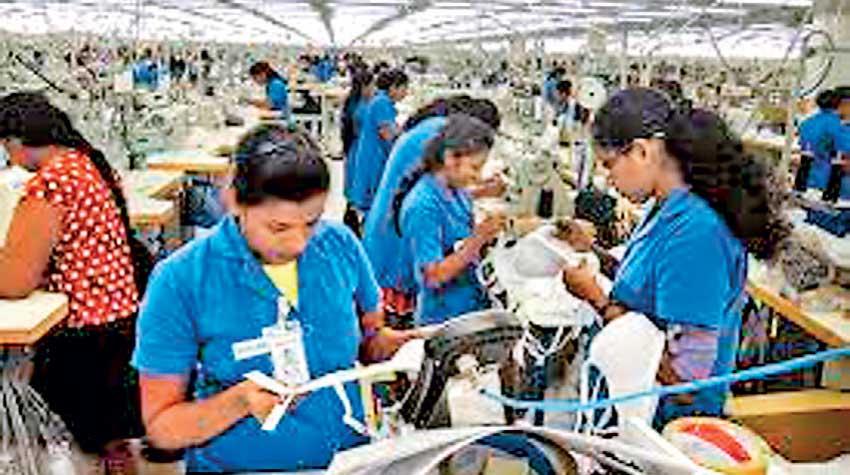16 Jun 2022 - {{hitsCtrl.values.hits}}

The industrial production, which measures the manufacturing heft in the country, slumped further in April, partly reflecting that it is withering away amid the persistent power and energy crises, shortages in fuel and other imported commodities and political and economic uncertainties.
According to the latest data released by the Census and Statistics Department, the Index of Industrial Production (IIP) shed 7.2 percent to 87.3 index points from a year ago, after losing 10.2 percent in March, ahead of the festive month.
Generally March has a higher index value for the industrial production activities, as the factories ramp up their production to meet the festive demand in April and also for the export market before seeing some deceleration in April, due to the New Year holidays.
However, this time, both March and April index sank, reflecting the daily power cuts, persistent shortages in fuel and other imported materials used for production and mostly the record high supplier inflation, which massively buffeted the industrial sector.
In another massive blow to the sector, the sharp increase in borrowing costs also affected the companies, as factories put on hold their expansion plans and scaled down manufacturing operations after the policy measures were directed at restraining demand, although much of the problems lie in lack of supplies.
The food product manufacturing fell by 12.4 percent between the two periods in April while the beverages showed only a 0.2 percent increase, perhaps due to exports.
The wearing apparels meanwhile showed some robust growth of 32.2 percent in April over the same month last year but the future looks bleak, as the industry stakeholders feel that their customers are shifting their orders elsewhere to reduce the risk of reliance on Sri Lanka, due to the ongoing instability in its economy and society.
An apparel sector stakeholder said there are signs of declining of orders by up to 20 percent, of which the impact would be seen in July and August. The garment exporters are also said to be facing issues in paying their suppliers, due to the lack of dollars in banks, which may affect the imports of their raw materials.
The textiles and garments is the largest manufacturing industry in Sri Lanka, generating US $ 5.0 billion in export income per annum.
Meanwhile, among the other major subcategories under the IIP, the coke and refined petroleum products took the biggest plunge by contracting by 97.8 percent over a year ago, as the refinery was non-operational, due to the acute fuel crisis facing the country.
The chemical and chemical products manufacturing activities expanded by 33.3 percent in April while the rubber and plastic products had a slight improvement of 0.8 percent.
08 Nov 2024 39 minute ago
08 Nov 2024 2 hours ago
08 Nov 2024 3 hours ago
08 Nov 2024 5 hours ago
08 Nov 2024 6 hours ago